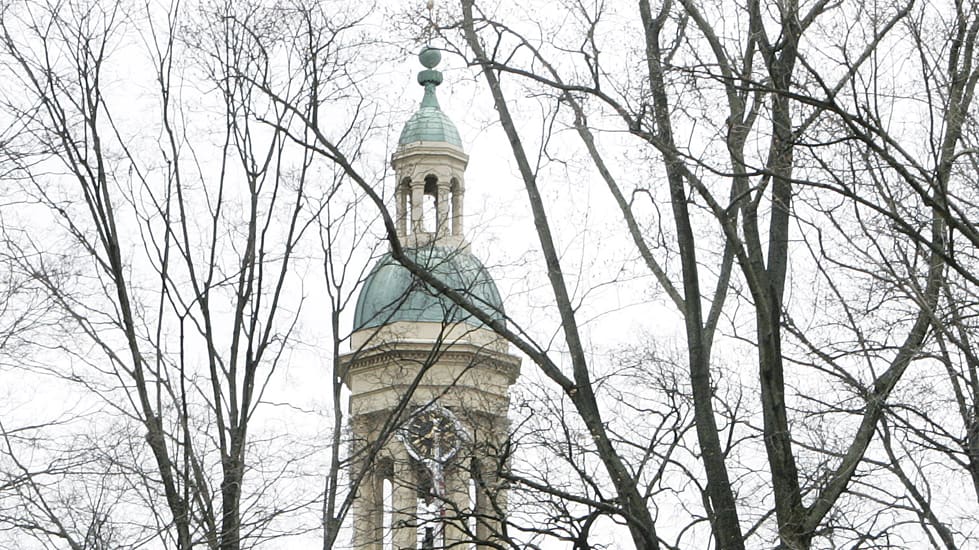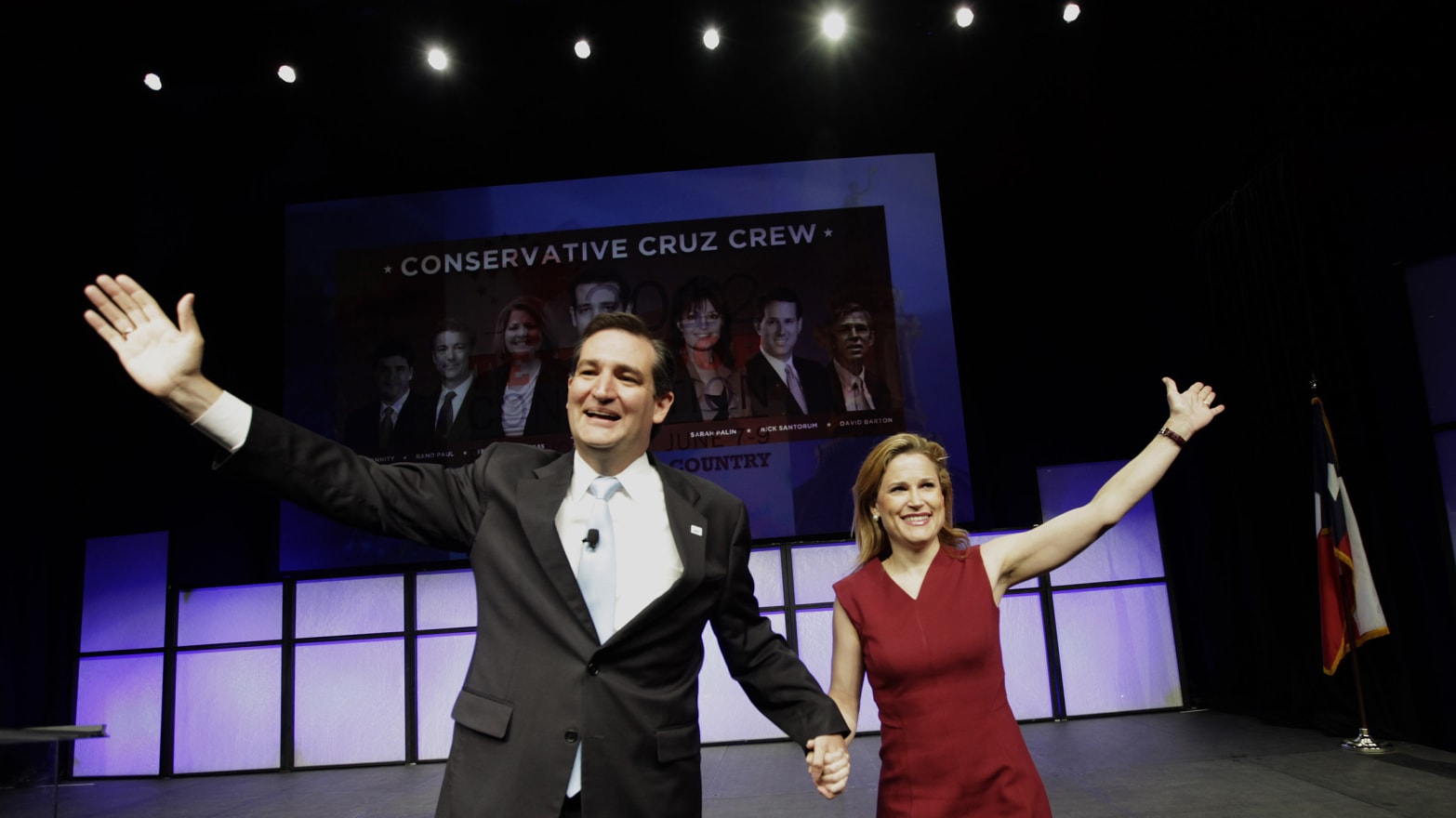When Craig Mazin first met his freshman roommate, Rafael Edward Cruz, he knew the 17-year-old Texan was not like other students at Princeton, or probably anywhere else for that matter.

"I remember very specifically that he had a book in Spanish and the title was Was Karl Marx a Satanist? And I thought, who is this person?" Mazin says of Ted Cruz. “Even in 1988, he was politically extreme in a way that was surprising to me.”
By Mazin’s account and those of multiple members of Princeton’s class of 1992, the Ted Cruz who arrived as a college freshman in 1988 was nearly identical to the man who arrived in Washington as a freshman Republican senator in 2013: intelligent, confident, fixated on conservative political theory, and deeply polarizing.
“It was my distinct impression that Ted had nothing to learn from anyone else,” said Erik Leitch, who lived in Butler College with Cruz. Leitch said he remembers Cruz as someone who wanted to argue over anything or nothing, just for the exercise of arguing. “The only point of Ted talking to you was to convince you of the rightness of his views."
In addition to Mazin and Leitch, several fellow classmates who asked that their names not be used described the young Cruz with words like “abrasive,” "intense," “strident,” “crank,” and “arrogant." Four independently offered the word “creepy,” with some pointing to Cruz’s habit of donning a paisley bathrobe and walking to the opposite end of their dorm’s hallway where the female students lived.
“I would end up fielding the [girls’] complaints: 'Could you please keep your roommate out of our hallway?'" Mazin says.
Cruz also angered a number of upperclassmen his freshman year when he joined in a regular poker game and quickly ran up $1,800 in debt to other students from his losses. Cruz’s spokeswoman, Catherine Frazier, said Cruz acknowledges playing in the poker games, which he now considers “foolish.”
“He went to his aunt, who worked at a bank in Dallas, and borrowed $1,800 from her, which he paid in cash and promptly quit the game,” Frazier told The Daily Beast, explaining that Cruz worked two jobs and made monthly payments to his aunt for the next two years to repay the debt.
While Cruz may have been disliked, and intensely so, by many of his classmates, he found a close and longtime friend in a gregarious, popular student from Jamaica named David Panton, who became Cruz’s tag-team partner on Princeton’s renowned debate squad, as well as his roommate for the remainder of their time at Princeton and when they both attended Harvard Law School.

“Unlike what others may say, I consider Ted to be very kind. He is a very, very gentle-hearted person,” Panton told The Daily Beast. "He took me under his wing and was a mentor to me. He was very kind to me. I am a much smarter and much better person today because of Ted Cruz."
Cruz and Panton debated together for four years at Princeton and came to dominate the collegiate parliamentary debate circuit, winning the North American championships in 1992 and being named the top two collegiate debaters in the country (Cruz was No. 1). The competitive debate world also gave Cruz a different social circle, with fellow debaters congregating in his room to hang out and play Super Mario Bros. Debate weekends included Friday night parties that Cruz often attended, where he was remembered to be "sort of a stud" with girls on the debate circuit. Princeton debaters also said he spent extra time mentoring them to improve their skills, even though they competed against each other.
Michael Lubetsky, who was in the class behind Cruz and debated with him for three years, said he considered Cruz a very good friend while he was in college. Lubetsky explained that students who found Cruz combative may have simply been seeing what made Cruz so successful as a debater.
“Debate is competitive argumentation so debaters tend to be competitive and argumentative,” Lubetsky said. “Ted was the top debater in the United States, although he wasn't the sort of person to walk up to people and start arguments with them."
Cruz ran for student government president unsuccessfully more than once, but rose to lead the conservative portion of the college’s Whig-Cliosophic Society, a high-minded political club that was co-founded by James Madison (class of 1771). To other students, Cruz seemed singularly interested in ideological life, and Whig-Clio proved the natural outlet for it. Other members of Whig-Clio have included Aaron Burr, Woodrow Wilson, Samuel Alito, and Mitch Daniels.
From Princeton, Cruz joined the intellectual and ideological elite—Harvard Law School, where he finished magna cum laude; a clerkship for Chief Justice William Rehnquist; a stint on the Bush-Cheney 2000 campaign working for Josh Bolten (class of ’76); and two jobs in the Bush administration before being appointed Texas’s solicitor general in 2003 and later launching his campaign for Senate.
Throughout those years, Cruz and Panton remained friends, and Panton still speaks highly of him, saying with praise that the one word that describes Cruz best is “consistent.”
“He's not someone who shifts in the wind,” Panton says. “The Ted Cruz that I knew at 17 years old is exactly the same as the Ted Cruz I know at 42 years old. He was very conservative then, and an outspoken conservative. He remains strongly conservative today."
That consistency reveals itself in Cruz’s senior thesis, which he completed under the mentorship of Robert George, a professor of jurisprudence whom The New York Times called “the reigning brain of the Christian right.”
Cruz’s thesis, “Clipping the Wings of Angels,” quoted James Madison in the Federalist Papers saying in part that, “If men were angels, no government would be necessary.” Cruz focused on the history and theory behind the Ninth and 10th Amendments in a constitutional defense that reads like a speech he could give at any Tea Party event in the country.
The time-capsule quality of Cruz’s politics is lost on no one who knew him at Princeton, none of whom could point to a political position that he held 25 years ago that he does not seem to still hold today. For some, that amounts to a laudably consistent belief system. For others, it reveals a man of calcified thinking, dangerously impervious to facts, reality, and a changing world.
"More than anyone I knew, Ted seemed to have arrived in college with a fully formed worldview,” Butler College colleague Erik Leitch said. “And what strikes me now, looking at him as an adult and hearing the things he's saying, it seems like nothing has changed. Four years of an Ivy League education, Harvard Law, and years of life experience have altered nothing."
While Cruz’s friends from the debate team foresaw a successful career in politics for Cruz, many of the Princeton alums offered that they were deeply troubled by the possibility of Cruz running for president, a notion that one, who did not want to be quoted speaking against a former classmate who is now a senator, called notion “horrifying.”
Craig Mazin said he knew some people might be afraid to speak in the press about a senator, but added of Cruz, “We should be afraid that someone like that has power.”
And the idea that his freshman roommate could someday be the leader of the free world? “I would rather have anybody else be the president of the United States. Anyone,” Mazin said. “I would rather pick somebody from the phone book."

